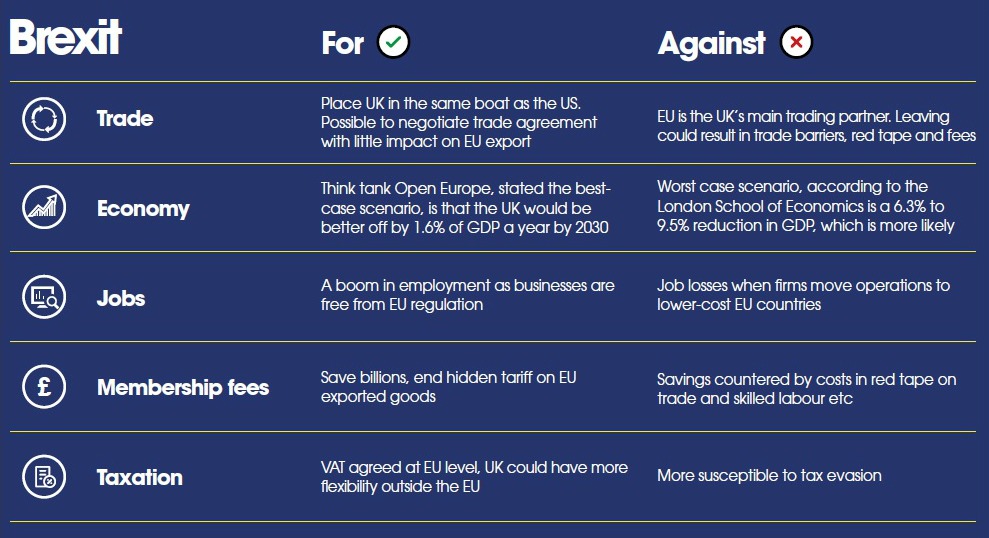
On Thursday, June 23, residents of the United Kingdom will head to the polls to vote “yes” or “no” to a single question: "Should the United Kingdom remain a member of the European Union or leave the European Union?” Simple as it sounds, the outcome of the referendum will have a significant impact on the country’s future.
The European Union

As you may or may not know, the European Union (EU) is an economic-political union of 28 member states that are located primarily in Europe. It was established by France and Germany, five years after World War II, to ensure that the two countries would never go to war again. Since then it has grown to include 28 countries and become increasingly cohesive. Goods and people from member states can move freely from one country to another, and most have adopted the euro as their currency. The EU also has its own parliament that decides on the laws that govern various important matters including environment, transportation, and consumer rights.
The Referendum

Though the union worked well initially, there has been some dissent lately especially in Britain, where many residents feel they are losing control of their destiny. One of the biggest concerns is the EU’s open border policy that has enabled immigrants from countries like Syria, to arrive in large numbers. The resources required to settle them is taking its toll on the British economy. Additionally, residents are also concerned about terrorism given that British officials are unable to vet the new arrivals before they enter the country.
In 2015, Prime Minister David Cameron tried to appease voters by promising that if re-elected, he would let the public decide if they wanted to continue to be part of the EU. Though Cameron has since been trying to convince residents that leaving is not a good idea and even cut a deal with the EU authorities to allow Britain to have more autonomy, his efforts have fallen short of expectations. The leader, therefore, has no choice but to live up to his campaign promise and hold the June referendum.
The Pros and Cons of Britain’s Exit (Brexit)

With less than a month left before the big decision, proponents and critics of Britain’s exit — or as it is more commonly called, Brexit — have come up with a list of reasons to convince residents to vote for or against leaving the EU. Those that want to leave say it will give the country better control over immigration and ease the burden, on the free healthcare system, as well as public schools, and transport. Supporters of Brexit also believe that it will save the country a significant sum of money given that the U.K. is the third biggest contributor to the EU budget and one of ten members that give more than they receive.
Critics, on the other hand, say while that may be the case, Britain benefits tremendously from being part of the EU. They believe that exiting could result in millions of job losses and have an adverse impact on the country’s economy. The opponents of Brexit assert that immigrants, most of whom are young and hungry for jobs, help the economy, not drain it. They also argue that Britain would lose its global status without the support of the European Union.
Which side will be able to convince the voters remains to be seen, but one thing is for sure — The outcome will be debated for months, if not years, so stay tuned!
Resources: BBC.com, wikipedia.com